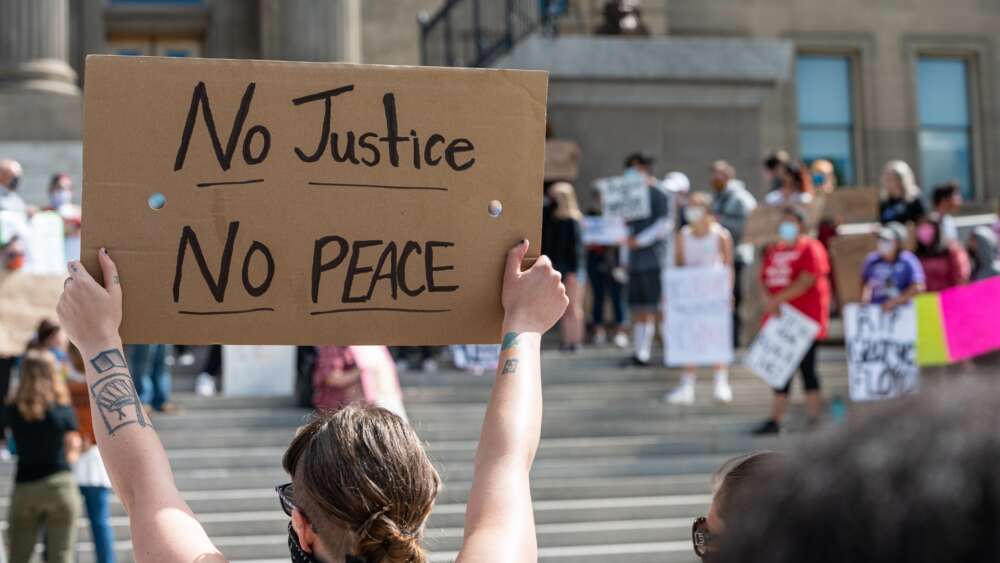Last New Year’s Eve was a low-key affair for me. I drove to the beach, sat at the headland watching a storm roll in, viewed the midnight fireworks on TV, and promptly went to sleep.
I remember feeling uneasy about the year ahead. I had few plans, no major events to look forward to, and was anxious about the bushfires that had already been ravaging the countryside for months.
If only I could have foreseen the year that would come.
In truth we know that “normal” doesn’t work for much of the world’s population.
I think we find comfort in dismissing 2020 as an unprecedented disaster where a microscopic virus brought everything tumbling down. It helps to justify our naive hope that the end of COVID-19 will return everything to normal.
Of course, in truth we know that “normal” doesn’t work for much of the world’s population. Under “normal” conditions, half the world’s population are denied essential health services and 690 million people go hungry.
And while COVID-19 has pushed our social and economic systems beyond the brink, the multitude of intersecting crises we’ve witnessed this year are not issues that exist in a COVID vacuum. When systems that were never designed to protect human life are pushed to their very edge, their rotten fruit is revealed.
Insecure employment for marginalised people, exploitation of low-cost international labour, pillaging natural resources and violence towards people of colour have been the underpinning of Western society for centuries.
Only this year, they were all visible, to all of us, all at once.
And while the burden of these crises of health, economics and the environment will continue to disproportionately fall on the shoulders of these groups, this year everyone felt at risk.
And that made us see that “normal” is broken.
So I wonder, what does a return to “normal” bring? The ability for the privileged to retreat into safety, and for those most vulnerable to continue suffering quietly, away from our TV screens and social media feeds?
That might be convenient for those who hold power, money and resources. I might find it easier to get back to daily life without that gnawing feeling in my stomach. But most would still be suffering.
With everything that 2020 has taken away, I won’t forget what I’ve seen and felt this year – fear, outrage, urgency to act.
I don’t subscribe to the sentiment that 2020 came as a teaching moment, a lesson to make us all better people. I think it’s unwise to romanticise senseless, widescale suffering as such.
But with everything that 2020 has taken away, I won’t forget what I’ve seen and felt this year – fear, outrage, urgency to act.
This year we have seen people show up en masse to stand with their fellow human beings and disrupt the return to a broken “normal”. Through protests, donations and engaging with democratic systems, this year has generated a palpable momentum for justice that we must carry forward.
More than a passive hope for the future, we must actively commit to do better.
I’ve been questioning what it means to do better in the face of such enormous injustices. How could I possibly make an impact when these issues are so complex, and run so deep?
I think at the most basic level, we need to attend to each other’s needs in reconciling love.
Love requires us to reflect and take responsibility for our own actions and prejudices.
One of the great treasures of the Christian faith is the concept of “eternal love”. We carry a vision of an eternal kingdom of God, which provides us comfort and peace that our broken world will one day be restored.
But while we rejoice in that peace, we can’t get too comfortable with “one day”. Eternal love can’t be an excuse to dismiss practical, tangible love we can give in the here and now. I can’t help but feel that to love is to facilitate fullness of life for everyone – for those who are near me, those I’ve never met, those who don’t look like me, and those who don’t believe the same things as me.
That tangible love requires us to reflect and take responsibility for our own actions and prejudices. It listens to the experiences and needs of marginalised people. It acknowledges where harm is being done in the name of good intentions. It is bold to hold governments and corporations to account for their actions. It recognises strength and resilience, and places power back into the hands of those from whom it has been taken for centuries.
Let’s go forward into 2021 committed to listening, learning and showing up for each other in real, practical acts of love.
Ally Turner is Advocacy Coordinator at Baptist World Aid Australia and a researcher for the Ethical Fashion Report. She is passionate about transforming institutions and industries to best serve the needs of marginalised people.


